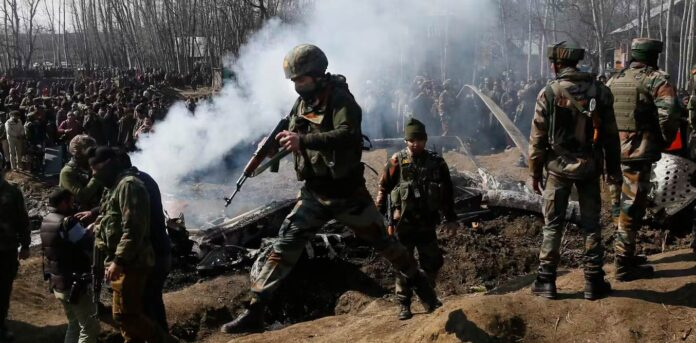Waging war over Kashmir isn’t restoring peace, it is destroying lives, as civilians are caught in the crossfire and forced to endure the fallout of political aggression.
Pakistan and India have been adversaries since their independence in 1947, engaging in four major wars primarily over the Kashmir issue.
In 2019, both sides agreed to a ceasefire. However, following the Pahalgam attack in April 2025, India blamed Pakistan, without presenting concrete evidence, and accused Islamabad of supporting terrorism. On May 7, India launched strikes on parts of Pakistan-administered Kashmir and Punjab. This provoked Pakistan to retaliate, and both nations are now effectively at war.
At present, both sides are exchanging fire, intercepting missiles and drones, spreading misinformation, and fueling public hysteria.
The death toll in Pakistan and Pakistan-administered Kashmir has risen to 31, with 57 injured, according to a military official. Meanwhile, overnight shelling by the Pakistani military on the Indian side of the Line of Control in Kashmir killed 12 civilians and injured 57, an Indian defense source told CNN. Since the April massacre, near-daily exchanges of fire have taken place across the Line of Control.
While Delhi and Islamabad clash, it is the Kashmiris on the front lines who bear the brunt of both governments’ jingoism. Though jingoistic rhetoric is evident in both countries, the situation in India is particularly pronounced; Indian media outlets and celebrities enthusiastically cheer for “Operation Sindoor” as though war were a Bollywood film. But war is not cinematic; it is brutal and tragic. Celebrating violence and the deaths of innocent people from behind a screen is not patriotism, it is cruelty and deeply inhumane.
If this conventional war continues, it will cost countless lives. And should the situation escalate into a nuclear confrontation, the consequences will extend beyond the subcontinent to threaten regional, even global, stability.
Indo-Pakistan tensions have always come at a high cost to civilians, people who simply want peace. Authorities on both sides must acknowledge this human reality. Ordinary lives are upended by sudden decisions made behind closed doors, decisions that plunge entire communities into misery.
This raises a question: Will the Modi government’s actions eradicate terrorism? The answer is no. They may worsen it. Some analysts argue that Prime Minister Narendra Modi, with his track record, often escalates tensions with Pakistan to galvanize his voter base and dominate the electoral landscape.
As the famous Urdu poet Rahat Indori once said:
Sarhadon par tanaav hai kya, kuch pata to karo; chunaav hai kya?
Khouf bikhar gaya hai dono aur samton mein; teesri samt ka dabav hai kya?




